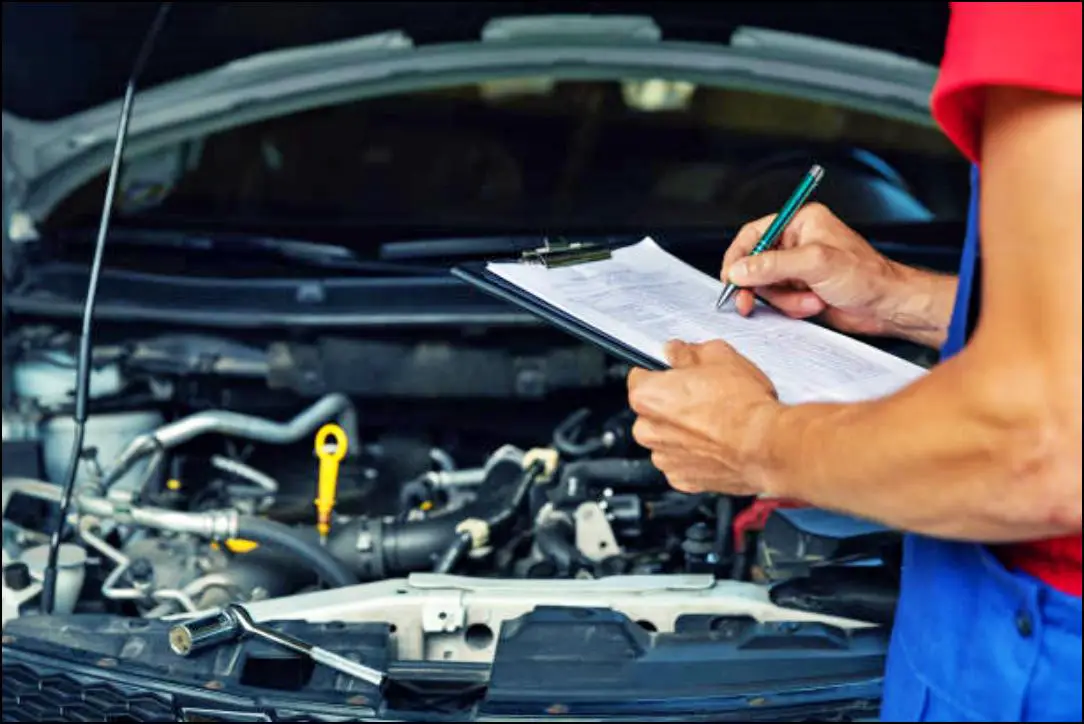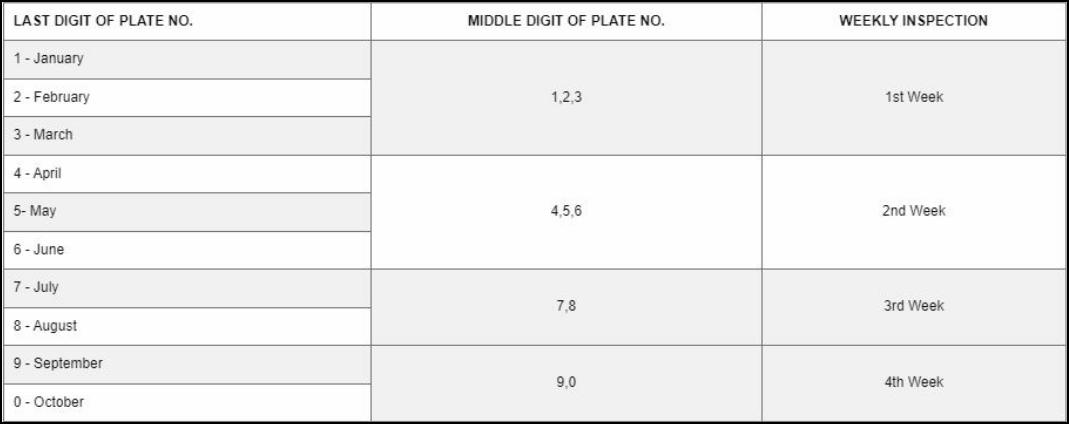Motor vehicle inspection is an essential process that every car owner must undergo in compliance with LTO’s standards. Its primary goal is to guarantee that the car is roadworthy, which ultimately ensures the safety of the driver, pedestrians, and other motorists on the road.
Also read: How to Register Your Motor Vehicle: Requirements and Process
Through this inspection, LTO certifies each vehicle’s roadworthiness by thoroughly examining its components, such as lights, brakes, tires, and suspension. As a responsible car owner, you should prioritize taking your car for inspection regularly, not just to comply with LTO standards but also to ensure your safety on the road.

What are the Advantages of a Motor Vehicle Inspection?
Having your vehicle regularly inspected can be extremely beneficial. An inspection can help to identify any potential issues and enable you to make repairs before they become more serious and costly.
Here are some of the main benefits of having an annual motor vehicle inspection:
- Safety: An inspection can help to detect any safety hazards in your vehicle, such as faulty brakes or worn tire. This helps to ensure that you and your passengers remain safe while on the road.
- Prevention of Costly Repairs: During a motor vehicle inspection, any minor issues with your car will be detected before they become more serious. This can save you from the costly repairs that may be necessary if the issues are not addressed in time.
- Peace of Mind: Having your vehicle inspected regularly provides peace of mind, knowing that any potential problems have been identified and repaired.
- Increased Resale Value: An inspection can help to identify any necessary repairs or replacements that may be needed in order to help maintain or even increase the resale value of your vehicle.
- Environmental Benefits: A motor vehicle inspection can help to ensure that your car runs smoothly and efficiently, which in turn helps to reduce your emissions and conserve fuel.
Who is Eligible to Apply?
Any individual who owns a motor vehicle is eligible to apply.
What are the Requirements Needed?
a. For Renewal of Motor Vehicles Registration
- Provide the original and/or one (1) photocopy of the Official Receipt (OR) or Certificate of Registration (CR).
- Submit the original and/or one (1) photocopy of the Certificate of Public Convenience (CPC) or the Order for dropping and substitution (Change Classification) (If For Hire).
b. All relevant miscellaneous registration transactions
- Original and/or one (1) photocopy of Official Receipt (OR) and Certificate of Registration (CR).
- Original Deed of Sale for the transfer of ownership.
- Original Philippine National Police – Highway Patrol Group (PNP-HPG) clearance for changes in engine, chassis, color, and body configuration, along with the corresponding affidavit.
c. Motor vehicles that have been apprehended and are in need of inspection
- One (1) original and/or photocopy of the Official Receipt (OR) / Certificate of Registration (CR).
- The original Driver’s copy of the Temporary Operator’s Permit (TOP).
Also read: How to Renew Your Motor Vehicle Registration
Application Process
There are multiple methods for inspecting your vehicles, depending on whether you visit the District office or the Motor Vehicle Inspection Center. Please refer to the instructions below and ensure that you follow these steps thoroughly.
a. Motor Vehicle Inspection Center (MVIC)
Step 1: Submit the required documents.
Step 2: Proceed to the cashier to pay the fees and receive an official receipt (O.R.).
Step 3: Present the motor vehicle for inspection.
Step 4: Receive the inspection report and necessary requirements.
b. District Offices
Step 1: Submit the required documents.
Step 2: Present your Motor Vehicle.
Where to Go for Your Motor Vehicle Inspection?
- Motor Vehicle Inspection Centers
- Authorized LTO District Offices (DO)
- Extension Offices (EO)
Motor Vehicle Inspection Fees and Charges
a. For motor vehicles with a gross vehicle weight (GVW) equal to or less than 4,500 kg
- Smoke emission test: P40.00
- Motor vehicle inspection: P50.00
- Total: P90.00
b. For motor vehicles with a GVW more than 4,500 kg
- Smoke emission test: P40.00
- Motor vehicle inspection: P75.00
- Total: P115.00
c. For motorcycles (MC) and tricycles for hire with a franchise (TCP)
- Smoke emission test: P40.00
- Motor vehicle inspection: P50.00
- Total: P90.00
Note: A penalty of fifty pesos (P 50.00) will be imposed on vehicles that do not comply with the designated testing schedule.
Motor Vehicle Schedule Inspection
Regular motor vehicle inspection is an essential part of being a responsible driver. It helps to ensure that your vehicle is running safely and efficiently, and it also makes sure that the environment is not hurt by any emissions from your car or truck.

IMPORTANT REMINDERS
- For any vehicle that does not meet the testing schedule provided below, a penalty of fifty pesos (P 50.00) shall be imposed.
- In case of a failed initial inspection, a re-inspection fee will be charged. The re-inspection will only cover the specific item(s) where the vehicle previously failed.
- If a motor vehicle fails either or both the smoke emission tests and motor vehicle inspection, the corresponding fee(s) will be collected during the re-inspection process.
Video: Actions to take to pass the Motor Vehicle Inspection System (Tagalog)
Watch this video to get a better understanding of the MVIS and what to do to pass the inspection.
Frequently Asked Questions
1. What is motor vehicle inspection?
A: Motor vehicle inspection is a process where vehicles are examined to ensure they meet safety and emission standards.
2. Why is motor vehicle inspection important?
A: Motor vehicle inspection is important to ensure the safety of drivers, passengers, and other road users. It helps identify and address any potential issues or defects in vehicles that could pose a risk on the road.
3. How often should I get my vehicle inspected?
A: As a general guideline, it is recommended to have your vehicle inspected by a mechanic at least once or twice a year. This regular inspection will ensure that all necessary maintenance and repairs are taken care of. By consistently keeping up with inspections, you can proactively address any potential issues that may arise unexpectedly.
4. Can I drive my vehicle without a valid inspection?
A: Driving a vehicle without a valid inspection can lead to legal consequences and fines. It is important to comply with the inspection requirements of your jurisdiction.
5. How long does a motor vehicle inspection typically take?
A: Inspections usually vary in duration, ranging from 15 minutes to an hour or even longer, depending on the specific type of inspection required for your car.
6. What happens if my vehicle fails the inspection?
A: If your vehicle fails the inspection, you will usually be provided with a list of issues or defects that need to be addressed. Once those issues are fixed, you can schedule a re-inspection.
7. Can I get my vehicle inspected at any authorized facility?
A: Motorists and vehicle owners have the choice to have their motor vehicles inspected either by an authorized private motor vehicle inspection center (PMVIC) or by the LTO.
8. Can I perform a self-inspection at home?
A: In most cases, motor vehicle inspections need to be conducted by authorized professionals at approved facilities. Self-inspections at home are usually not accepted.
Summary
Motor Vehicle Inspection is a vital part of ensuring the safety of drivers, passengers, pedestrians, and other motorists on the road. This process is designed to check if the vehicle is roadworthy and meets the various rigorous standards set by the Land Transportation Office (LTO). By making sure that your vehicle passes this inspection, you get the peace of mind that you are doing your part in preventing accidents on the road. So, take the time to have your vehicle inspected regularly, and drive with confidence, knowing that you are doing your part to promote road safety.
Contact Information
Email Address: ltomailbox@lto.gov.ph
Phone: 89229061 to 63
Website: https://lto.gov.ph